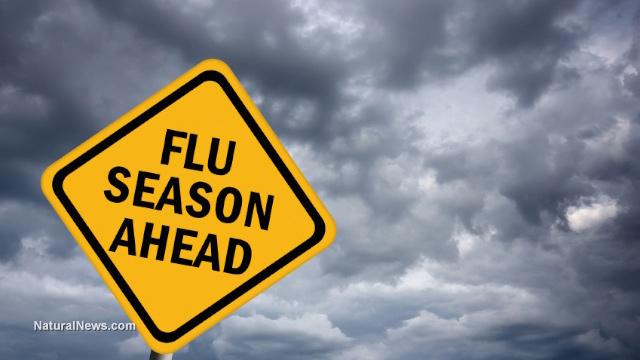Even though seasonal influenza (flu) viruses can be detected all year long in the United States, they are most common during the fall and winter. The height of the flu season is October through March. Now is the time to receive your Flu shot before the end of October, if possible.

What vaccines are recommended this season?
 The standard flu shot is recommended. We offer three different brands of standard flu shots:
The standard flu shot is recommended. We offer three different brands of standard flu shots:
- Fluzone
- Fluvirin
- Fluad
Our clinics do not administer FluMist or FluBlok. FluMist, the nasal flu vaccine, is not recommended because it is not as effective as the flu shot. FluBlok is a vaccine that is considered egg-free, but it is not licensed for use in persons less than 18 years of age.
Who should receive the flu shot?
- Everyone 6 months of age and older
- Pregnant women
- Patients with asthma
- Anyone with a weakened immune system (i.e. if you are on long-term steroids)
- Patients with egg allergy can safely receive the flu vaccine
What if I have an egg allergy?
 Recent studies have led both the CDC and the American Academy of Pediatrics to release new guidelines regarding administration of the flu vaccine in egg allergic patients. These studies have shown that almost all patients allergic to egg can safely receive the flu vaccine. The new guidelines stress that the risks of vaccinating egg allergic patients with the influenza vaccine are less than the risks of not vaccinating. This is true even for patients with a history of anaphylaxis to egg.
Recent studies have led both the CDC and the American Academy of Pediatrics to release new guidelines regarding administration of the flu vaccine in egg allergic patients. These studies have shown that almost all patients allergic to egg can safely receive the flu vaccine. The new guidelines stress that the risks of vaccinating egg allergic patients with the influenza vaccine are less than the risks of not vaccinating. This is true even for patients with a history of anaphylaxis to egg.
The CDC does recommend that those with egg allergy have their vaccination given under the supervision of a health care provider who is able to recognize and manage an allergic reaction.
If you are egg allergic and have a question about you receiving the flu shot, call our office.
Who should NOT get the influenza vaccine?
- History of SEVERE (anaphylactic) allergic reaction to any component of the influenza vaccine OR after an anaphylactic reaction to a previous dose of influenza vaccine.
- Children under 6 months of age
What symptoms should I watch for?
- Fever, body aches, chills, fatigue/weakness, sneezing, nasal stuffiness, sore throat, chest discomfort, cough and headache.
- Complications from the flu include pneumonia, bronchitis, sinus infection, ear infection and worsening of underlying medical conditions (such as asthma).

The best way to prevent the flu is to vaccinate each and every year! So don’t wait, VACCINATE!
For additional resources, please also visit:
- Centers for Disease Control and Prevention website at cdc.gov
- Colorado Department of Public Health and Environment at cdphe.state.co.us
Category: Uncategorized


